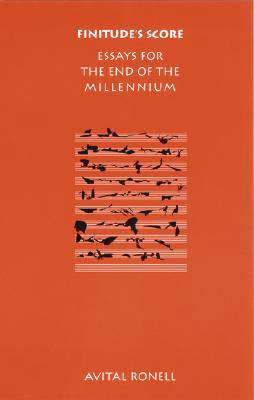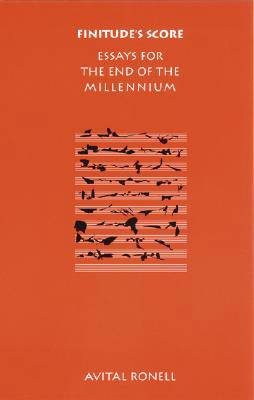
- Afhalen na 1 uur in een winkel met voorraad
- Gratis thuislevering in België vanaf € 30
- Ruim aanbod met 7 miljoen producten
- Afhalen na 1 uur in een winkel met voorraad
- Gratis thuislevering in België vanaf € 30
- Ruim aanbod met 7 miljoen producten
Zoeken
Omschrijving
Suspending the distinction between headline news and high theory, Avital Ronell examines the diverse figures of finitude in our modernity: war, guerrilla video, trauma TV, AIDS, music, divorce, sadism, electronic tagging, rumor. Her essays address such questions as, How do rumors kill? How has video become the conscience of TV? How have the police come to be everywhere, even where they are not? Is peace possible? "[W]riting to the community of those who have no community--to those who have known the infiniteness of abandonment," her work explores the possibility, one possibility among many, that "this time we have gone too far" "One last word. It is possible that we have gone too far. This possibility has to be considered if we, as a species, as a history, are going to get anywhere at all."
Specificaties
Betrokkenen
- Auteur(s):
- Uitgeverij:
Inhoud
- Aantal bladzijden:
- 370
- Taal:
- Engels
- Reeks:
Eigenschappen
- Productcode (EAN):
- 9780803289499
- Verschijningsdatum:
- 1/06/1998
- Uitvoering:
- Paperback
- Formaat:
- Trade paperback (VS)
- Afmetingen:
- 133 mm x 249 mm
- Gewicht:
- 562 g

Alleen bij Standaard Boekhandel
+ 76 punten op je klantenkaart van Standaard Boekhandel
Beoordelingen
We publiceren alleen reviews die voldoen aan de voorwaarden voor reviews. Bekijk onze voorwaarden voor reviews.








